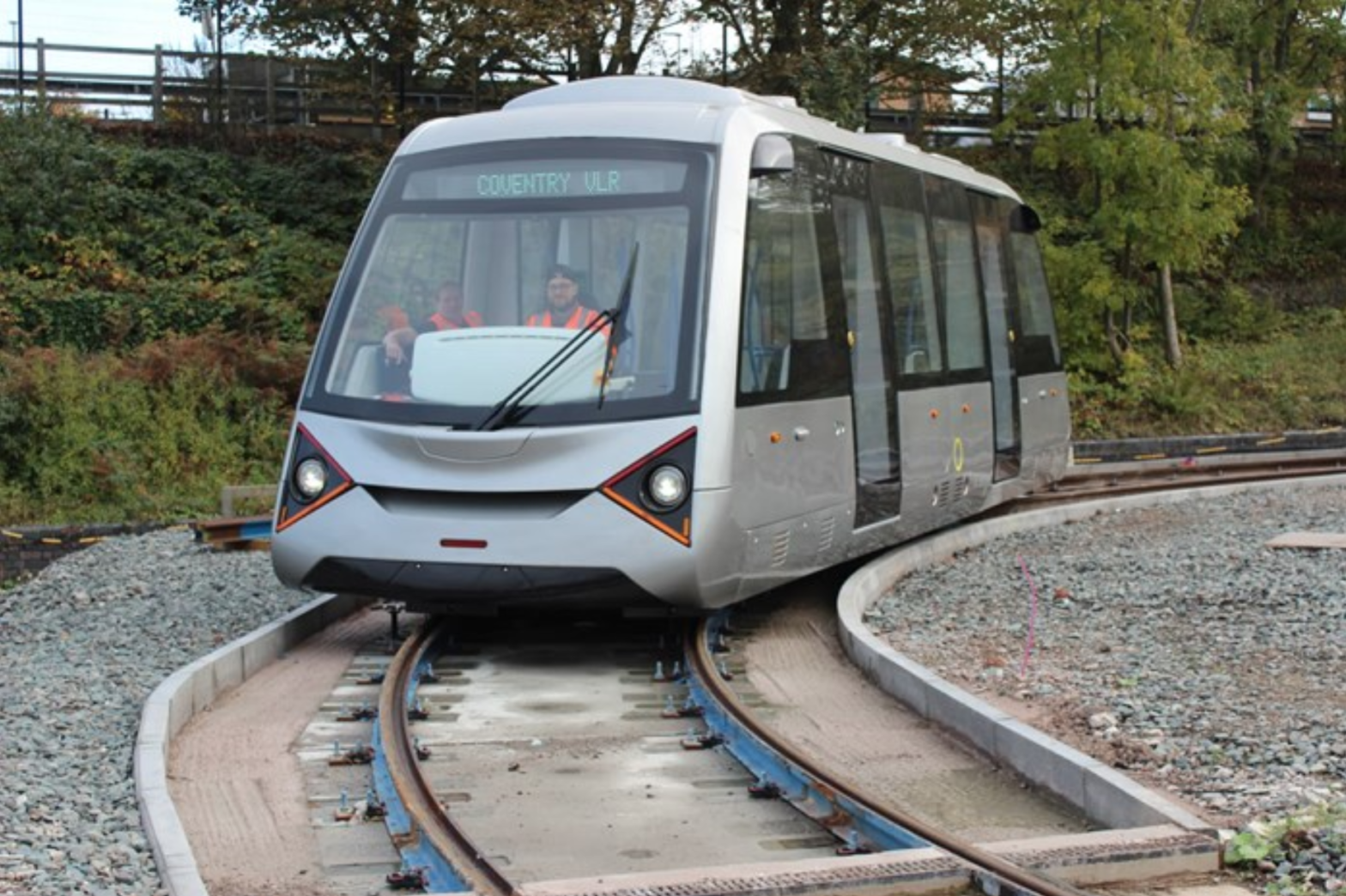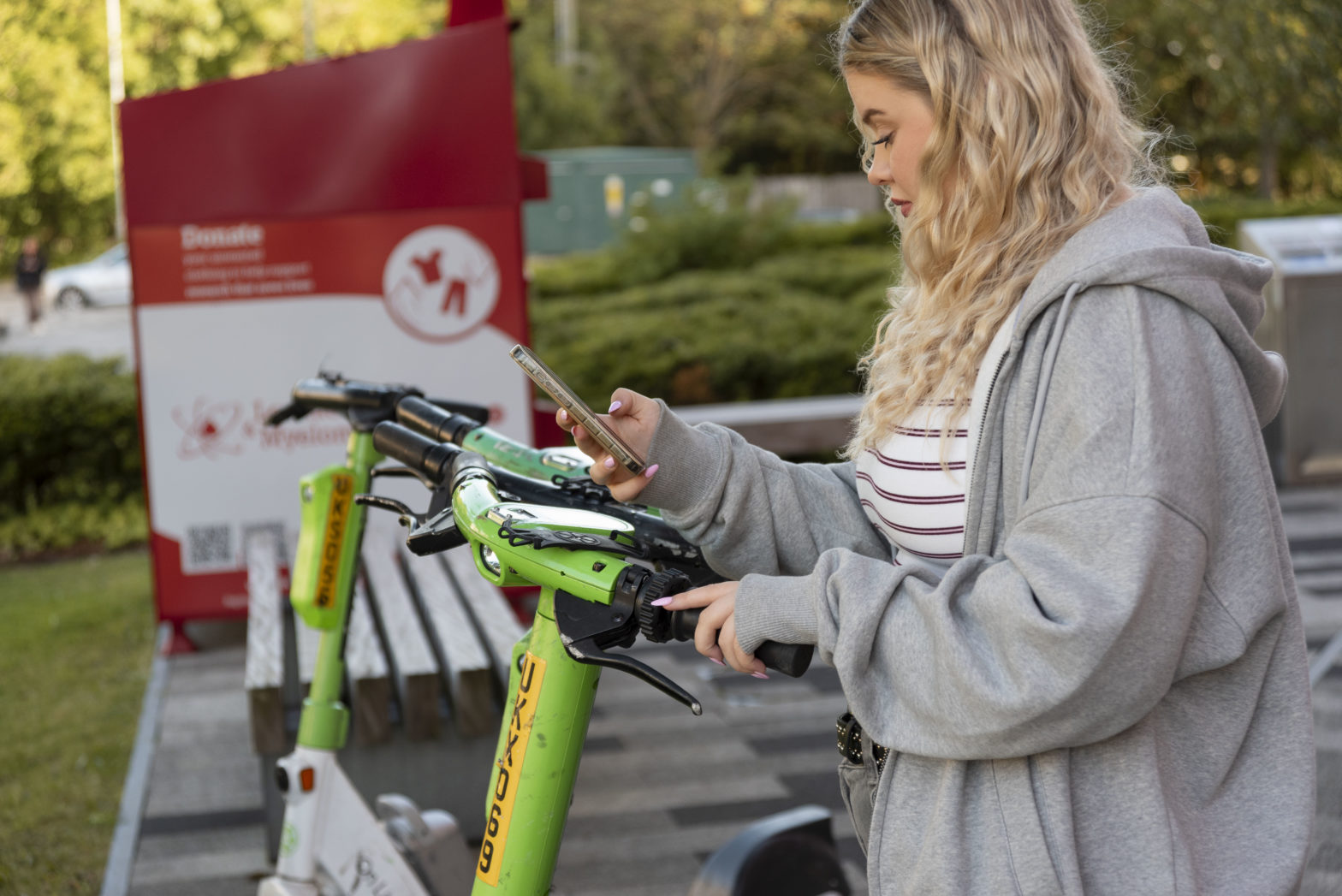
Coventry’s low-cost rail test track begins
24 April 2025
by William Thorpe
Construction is under way on the UK’s first Very Light Rail (VLR) test track, part of a pilot project in Coventry that aims to develop a lower-cost, zero-emission alternative to traditional tram systems for small and mid-sized cities.
The scheme is a collaboration between Coventry City Council, the West Midlands Combined Authority (WMCA), WMG at the University of Warwick, and Transport Design International. It features a battery-powered, lightweight vehicle and a prefabricated, shallow trackform that can be installed without diverting utilities–helping to reduce both construction costs and disruption to streets.
The test track, located at the VLR Innovation Centre in Dudley, will be used to evaluate system performance, including vehicle handling, energy use, and the integration of track and control technologies. A city-centre demonstrator route is planned in Coventry by 2027, with longer-term ambitions to link key destinations such as Coventry Rail Station, the University of Warwick, and University Hospital Coventry.
“This system is intended to address some of the cost and complexity issues that have limited light rail deployment in smaller cities,” said Dr Nick Mallinson, Programme Manager at WMG. “Our aim is to assess whether this technology can offer a more flexible and affordable option for local authorities.”
Traditional light rail systems can cost between £50 million and £100 million per kilometre, often due to the need for deep excavations and utility diversions. The Coventry VLR team estimates its system could be delivered for around £10 million per kilometre, using a modular trackform designed for quicker installation.
Councillor Jim O’Boyle, Coventry City Council’s Cabinet Member for Jobs, Regeneration and Climate Change, said: “This work is part of exploring new transport options that could meet local needs in a more cost-effective way. If successful, it could offer a model that other cities consider adopting.”
The project is funded through a mix of local, regional, and central government support, and aligns with WMCA’s wider efforts to develop more sustainable and inclusive transport solutions.
The test phase will help assess the system’s real-world performance and identify areas for improvement before it can be rolled out on a larger scale. The outcomes of the test programme will inform future decisions on potential deployment in Coventry and other urban areas.
Image: WMCA













